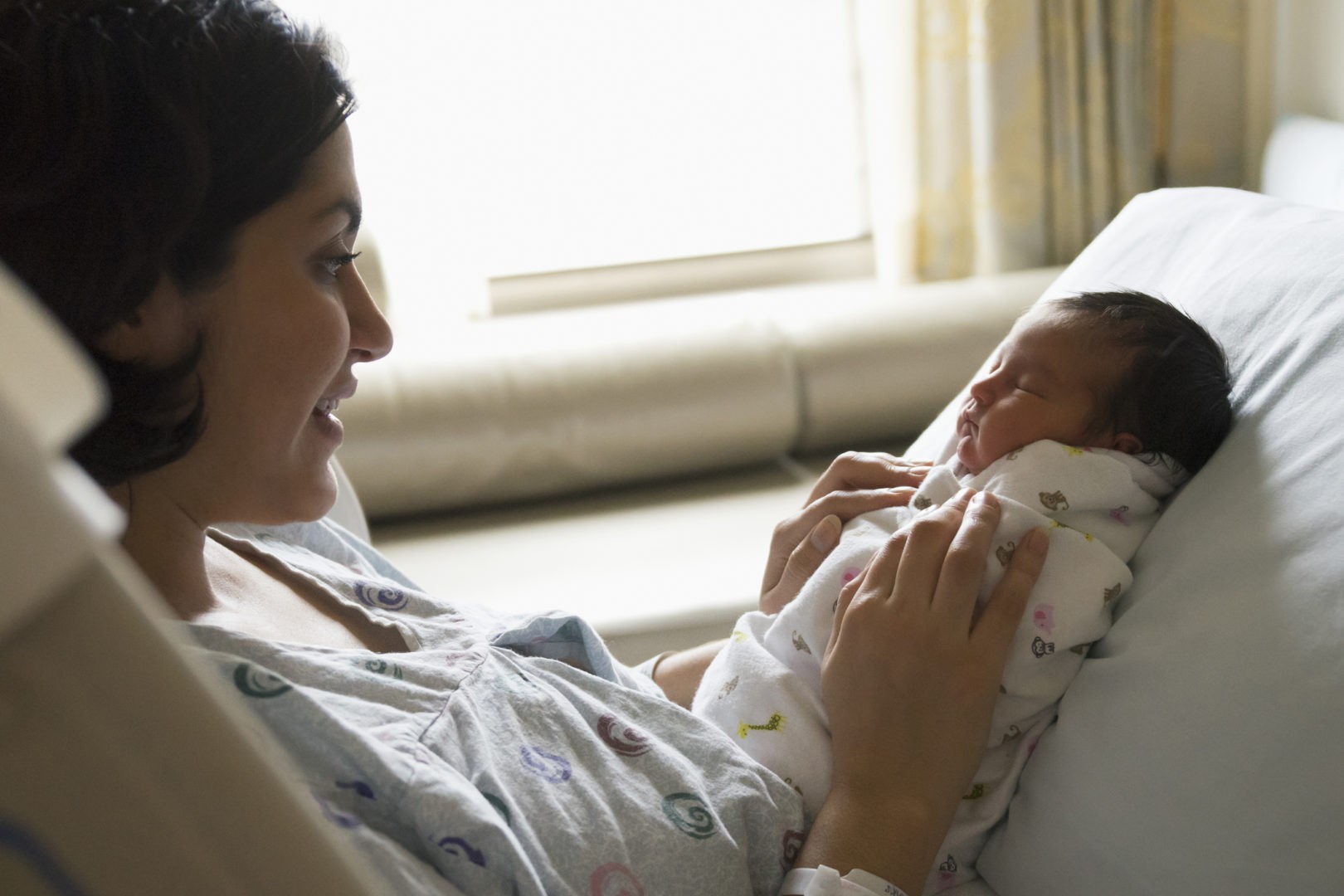Hospitals introduce new gender-neutral language to include every parent

A U.K. hospital system is making headlines for a new gender inclusive policy that changes the way health workers talk about pregnancy, breastfeeding and motherhood. Brighton and Sussex University Hospitals Trust has adopted new language and clinical guidelines that encourage the use of gender neutral language like “chestfeeding” and “pregnant people” to ensure respect and inclusion for all birthing parents.
The hospital’s policy changes give patients the ability to receive care from a specially trained gender inclusion support staff. This includes optional pronoun stickers added to patients’ medical charts as well as specialized perinatal, postnatal and lactation care that addresses the unique needs of transgender and non-binary individuals.
Additionally, Brighton and Sussex University Hospitals Trust released a 20-page document outlining inclusive terms to be used in official hospital communications and by hospital staff. In addition to the terms “mother” and “father,” hospitals will also adopt the use of “parent,” “co-parent” and “second biological parent.” “Maternal” will be replaced by “perinatal” in hospital pamphlets and other communications, and “maternal consent” will now be referred to as simply “informed consent.”
Brighton and Sussex University Hospitals Trust will also make changes in how they talk about infant feeding. While the terms “breastfeeding” and “breastmilk” will still be used, staff may also say “chestfeeding,” “chest milk,” “human milk” or “milk from the feeding mother or parent.”
These changes are not mandatory for all patients. They are simply options to help customize care and show respect for every birthing parent. “When talking to individuals, language will reflect their own individual identities and preferences,” a post on the hospital system’s Twitter account explains.
Gender diverse language and care options are vitally important because not everyone who gives birth or lactates is a woman. Some expectant parents may be transgender or non-binary. As Lamaze International, a nonprofit devoted to pregnancy and birth advocacy, explains, “A person who is transgender may have a uterus but identify and express their gender as male. This person may choose to become pregnant and birth a child. They need respectful and evidence-based childbirth classes just like other pregnant people.”
In the U.S., many states and organizations are making changes to recognize gender diversity. The Centers for Disease Control and Prevention (CDC) advise health professionals to offer inclusive, patient-centered care that takes into account the differing needs of people across the gender spectrum. Some major U.S. hospital systems, such as Johns Hopkins Medicine, have also created special teams and policies to address the needs of gender diverse patients. In at least 11 states, people also have the option to choose “X” or “non-binary” instead of “male” or “female” as their gender on birth certificates and driver’s licenses.
Brighton and Sussex Hospitals is the first U.K. hospital to officially adopt gender neutral language, according to the BBC. They’ve received some backlash from people who fear words like “mother” or “breastfeeding” will no longer be allowed, but that is simply not the case. “Our approach has been carefully considered to be inclusive of trans and non-binary birthing people without excluding the language of women or motherhood,” they explain on Twitter.
Reproductive care is deeply personal, and all patients deserve to be treated with dignity and respect. Gender inclusive language is a small, but important step in affirming the identity of every parent and person.
Previous:Child sleep disorder or just trouble sleeping? What to try and when to seek help
Next:How to tell kids about divorce in the most loving, compassionate way
-
Fertility (or lack thereof) is an elusive game. At any given time, a slew of factors — either on their own or combined — might affect a person’s ability, or inability, to conceive a child. The National Institutes of Health (NIH) lists 12
-
Over the course of the past several weeks, we’ve all watched and read in sadness and anger as Black men and women have been senselessly killed in America. We’ve also watched as millions of Americans have taken to the streets to
-
The only thing better than curling up with a good book is curling up with your little one and a good book. And even better than that? Sharing books that contain moral stories or that teach important lessons. While reading to c


